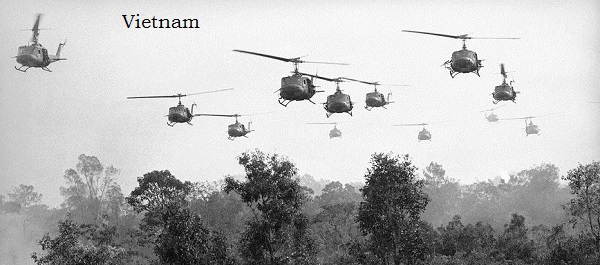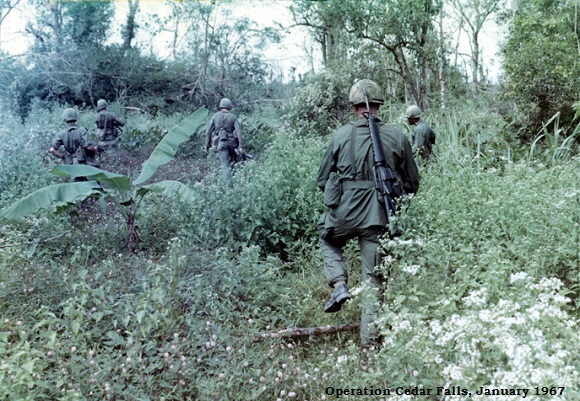


Cerro Gordo County Iowa
Part of the IAGenWeb Project
|
The Globe-Gazette
 The Globe Gazette will publish 50 stories — starting on Veterans Day — about North Iowa’s Vietnam Veterans. The stories will appear on Sundays and Wednesdays. We’ll culminate this "They Served With Honor" project with a special section (publishing on the day before Memorial Day) that will include all of the profiles. It will be great keepsake and resource for family members, educators and part-time historians.
by Courtney Fiorini, February 10, 2016
"I had been to Korea, Japan, two tours in Alaska and then stateside at Fitzsimons Army Hospital before I went ot Vietnam," said Uhde, 79. He was in the 25th Infantry Division as a medical platoon sergeant. "The first big operation I went on when I got there was Christmas Eve of 1966. It was an air assault," Uhde said. There were more than 20 choppers sent in to Cambodia to pick up some American POWs, but when they arrived the prisoners had already been moved. He remembers that there was a fire fight. "In January of 1967 I was in Operation Cedar Falls in the Iron Triangle," Uhde said. Operation Cedar Falls was a mission to eradicate the Iron Triangle, a major Viet Cong stronghold in a 125-square-mile area close to Saigon. It was the largest American ground operation of the Vietnam War, involving 30,000 U.S. and South Vietnamese troops.
 "We set up the aid station and I went out with the infantry platoons - that's when I was hit with shrapnel," Uhde said. On another operation his company spent 21 days in the jungle and suffered a few casualties. "You'd roast in the daytime and freeze at night," he laughed. "Oh, at night it was damp and cold and you'd give anything for a little space heater, then in the daytime you'd wish you had an air conditioner!" He was later promoted to first sergeant and then relocated to the 25th Medical Battalion and became first sergeant of D Company. "I lost a lot of good men, a lot of medics," Uhde said. "In 1967 I commanded a young man who came up from Eldora. He was so proud to say his first sergeant was from Marshalltown - that's where I was born and raised. It wasn't about a month later he was killed." Uhde said the worst part was the casualties he saw. In 1968 he was stationed in Madison, Wisconsin, where he was an adviser for the Army Reserve program, which he said he enjoyed. Unfortunately, that station had to do death notifications for next of kin, which he said was the worst part. "My wife and I dreaded when the phone would ring because I knew I would have to go," Uhde said. "That was hard." He was there for two years before he was sent back to Vietnam. "You never knew who your enemy was," Uhde said. The military would hire indigenous personnel to help out in the camps. Uhde said that there would be firefights at night and in the morning they would find out that some of the people who they had hired were attacking them. "Someone planted a mine in the mess hall. You'd see them counting their steps, marking off for mortar targets at night and a kid could come up and drop a grenade at your feet," Uhde said. "I mean they used kids, women, old people and when we got home, they called us baby killers and whatnot, but you never knew who you were fighting." Like many others, the return home was difficult. "I was like a lot of the rest of them - when you came back, you were treated like dirt," Uhde said. "Not so much here in Iowa." The big cities were the worst, he said. When Uhde returned to North Iowa he worked for the Cerro Gordo County Sheriff's Department at the jail and Metalcraft for a while. "I retired from the military in December 1973," Uhde said. "I'd do it again if I had to." Transcription by Sharon R. Becker, March of 2016
|